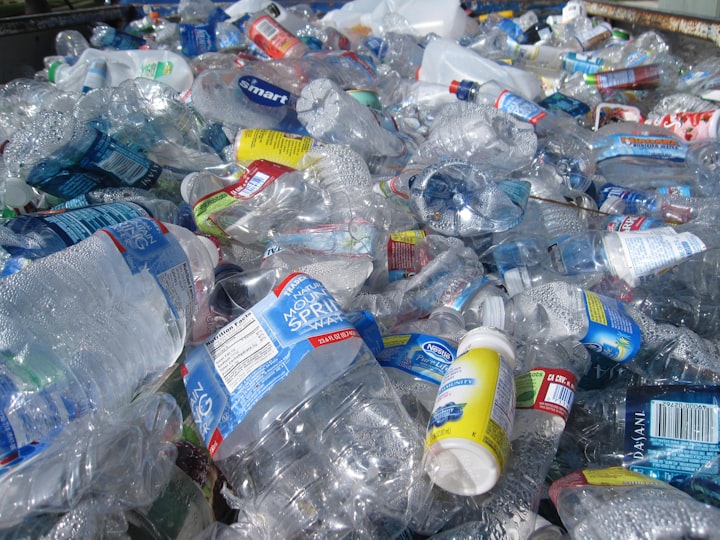Let's Just Ban Single-Use Plastics Already
Why We Need to Take Action to Reduce Single-Use Plastics and Invest in a Sustainable Future

Single-use plastics have become a ubiquitous part of our daily lives, but the convenience they offer comes at a steep environmental cost. These plastics are not biodegradable and, as a result, accumulate in our landfills and oceans, harming wildlife and contributing to climate change. It's clear that we need to take action to reduce our dependence on these plastics and invest in more sustainable alternatives.
One of the most significant impacts of single-use plastics is their contribution to ocean pollution. Every year, millions of tons of plastic waste end up in our oceans, where it poses a threat to marine life and disrupts ecosystems. Plastic bags and packaging can entangle or suffocate marine animals, while plastic debris can be mistaken for food and ingested by fish, birds, and other marine life.
Single-use plastics also have significant environmental impacts beyond ocean pollution. The production of plastic requires fossil fuels and releases greenhouse gases into the atmosphere, contributing to climate change. Additionally, when plastic is disposed of improperly in landfills or oceans, it can release methane and other greenhouse gases.
The need for action to reduce plastic waste is clear. Many countries and cities around the world have already taken steps to ban or restrict single-use plastics, and there is growing public support for further measures. In addition to the environmental benefits, there are economic and health benefits to reducing plastic waste. Investing in sustainable alternatives to single-use plastics can create jobs and stimulate economic growth, while also reducing public health risks associated with plastic pollution.
Fortunately, there are alternatives to single-use plastics that are more sustainable and eco-friendly. Reusable bags, water bottles, and food containers can all help to reduce the amount of plastic waste generated. Many businesses and governments are also exploring more sustainable alternatives to single-use plastics, such as biodegradable packaging and compostable utensils.
However, there are challenges associated with the transition away from single-use plastics. For example, some alternatives to plastic may be more expensive or less convenient, which can make it challenging for individuals and businesses to adopt them. Additionally, there may be cultural and social barriers to reducing plastic waste. Many people are used to the convenience of single-use plastics and may be resistant to change.
Despite these challenges, the benefits of reducing plastic waste and transitioning to more sustainable alternatives are clear. By taking action to ban or reduce single-use plastics, we can create a more sustainable and eco-friendly future for ourselves and for future generations. In addition to the environmental benefits, reducing plastic waste can have economic and health benefits as well.
Governments and businesses can play a key role in reducing single-use plastics by implementing policies and practices that promote sustainable alternatives. For example, some countries have introduced bans on plastic bags, while others have introduced taxes on single-use plastics to encourage consumers to switch to more sustainable options. Businesses can also take steps to reduce plastic waste, such as offering discounts for customers who bring their own reusable bags or containers.
Individuals can also play a role in reducing plastic waste by making simple changes to their daily habits. Some examples include using a refillable water bottle, bringing reusable bags to the grocery store, and avoiding single-use plastic utensils and straws.
In conclusion, single-use plastics are a major contributor to environmental degradation and climate change. While there are challenges associated with the transition away from single-use plastics, there are also many benefits to investing in more sustainable alternatives. By taking action to reduce our dependence on single-use plastics, we can protect our planet and create a healthier, more sustainable future for ourselves and future generations.
About the Creator
Walter Hines
I'm Walter Hines, a lifelong writer. Writing is my passion. It's how I express myself and connect with others. I'm always learning and pushing my boundaries, and I'm passionate about the power of words to connect, inspire, and change lives.





Comments
There are no comments for this story
Be the first to respond and start the conversation.